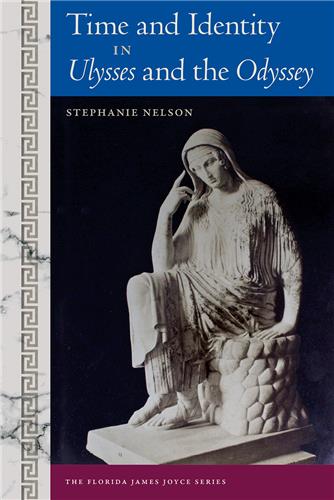A guide for today’s classrooms, this collection from leading James Joyce scholars explores innovative pedagogical approaches to the works of the often-challenging writer, helping both new and experienced teachers of Joyce make his texts understandable, relatable, and even fun.
The Florida James Joyce Series
Edited by Sam Slote, Trinity CollegeSam Slote
Trinity College
School of English
Trinity College Dublin
Dublin D02 PN40, Ireland
slotes@tcd.ie
There are 51 books in this series.
Please note that while you may order forthcoming books at any time, they will not be available for shipment until shortly before publication date
This book demonstrates that James Joyce’s Ulysses is a book that imitates the workings of the human mind, connecting close readings of the novel’s text to psychological theories of Joyce’s time.
Approaching James Joyce’s Finnegans Wake with attention to the theme of guilt, Talia Abu presents a clear and thorough interpretation of the work that shows the importance of the theme to Joyce’s craft.
This book offers the first critical edition of the forty short texts James Joyce called “epiphanies.” Presenting the texts with background information and thorough annotations, this edition provides a vivid insight into Joyce’s art.
Using genetic criticism, an approach focused on the materiality of the writing process, this book shows how the creative process of modernist writer James Joyce can be reconstructed from his manuscripts.
Examining the role of boundaries and limits in James Joyce’s later works, primarily Finnegans Wake but also Ulysses and other texts, this book explains and reconciles Joyce’s contrary tendencies to establish and transgress limits and shows the Wake’s relevance to many different fields of thought.
In this book, Neil Davison argues that Albert Altman, a Dublin-based businessman and Irish nationalist, influenced James Joyce’s creation of the character of Leopold Bloom as well as Ulysses’ broader themes surrounding race, nationalism, and empire.
Addressing James Joyce’s borderlessness and the ways his work crosses or unsettles boundaries of all kinds, the essays in this volume position borderlessness as a major key to understanding Joycean poiesis, opening new doors and new engagements with his work.
A unique in-depth comparative study of two classic literary works, this volume examines essential themes in James Joyce’s Ulysses and Homer’s Odyssey, showing how each work highlights and clarifies aspects of the other.
In this book, Fran O’Rourke examines the influence of Aristotle and Thomas Aquinas on James Joyce, arguing that both thinkers fundamentally shaped the philosophical outlook which pervades the author’s oeuvre.











